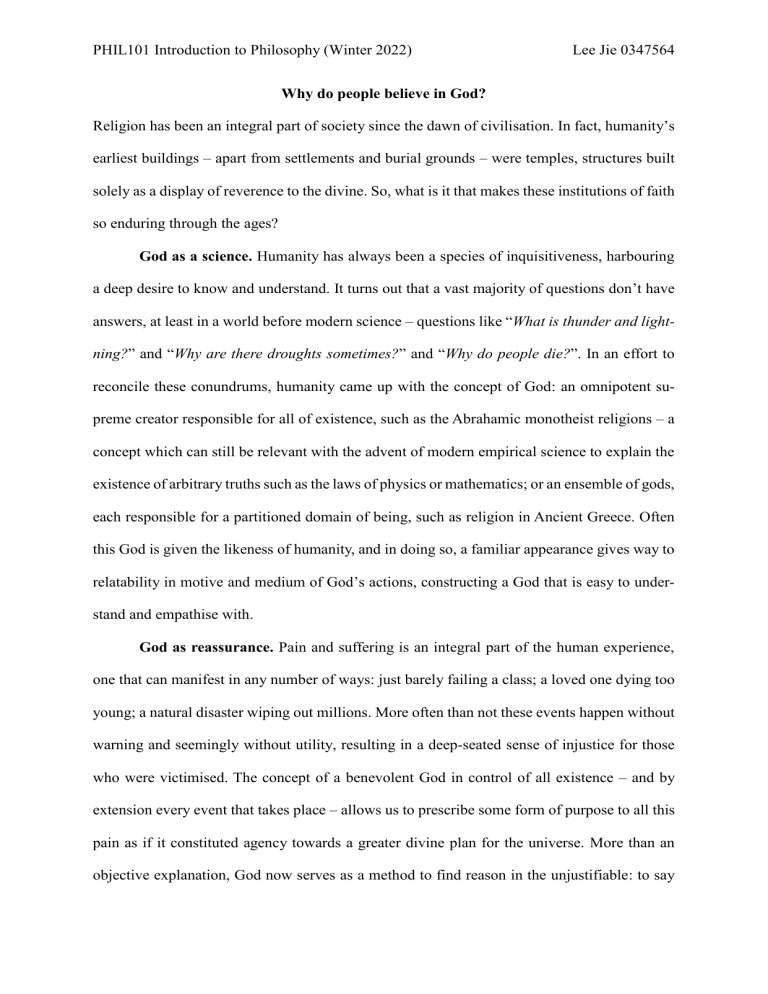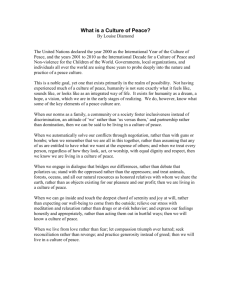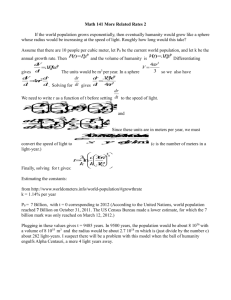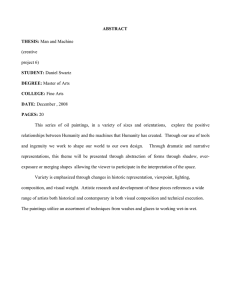
PHIL101 Introduction to Philosophy (Winter 2022) Lee Jie 0347564 Why do people believe in God? Religion has been an integral part of society since the dawn of civilisation. In fact, humanity’s earliest buildings – apart from settlements and burial grounds – were temples, structures built solely as a display of reverence to the divine. So, what is it that makes these institutions of faith so enduring through the ages? God as a science. Humanity has always been a species of inquisitiveness, harbouring a deep desire to know and understand. It turns out that a vast majority of questions don’t have answers, at least in a world before modern science – questions like “What is thunder and lightning?” and “Why are there droughts sometimes?” and “Why do people die?”. In an effort to reconcile these conundrums, humanity came up with the concept of God: an omnipotent supreme creator responsible for all of existence, such as the Abrahamic monotheist religions – a concept which can still be relevant with the advent of modern empirical science to explain the existence of arbitrary truths such as the laws of physics or mathematics; or an ensemble of gods, each responsible for a partitioned domain of being, such as religion in Ancient Greece. Often this God is given the likeness of humanity, and in doing so, a familiar appearance gives way to relatability in motive and medium of God’s actions, constructing a God that is easy to understand and empathise with. God as reassurance. Pain and suffering is an integral part of the human experience, one that can manifest in any number of ways: just barely failing a class; a loved one dying too young; a natural disaster wiping out millions. More often than not these events happen without warning and seemingly without utility, resulting in a deep-seated sense of injustice for those who were victimised. The concept of a benevolent God in control of all existence – and by extension every event that takes place – allows us to prescribe some form of purpose to all this pain as if it constituted agency towards a greater divine plan for the universe. More than an objective explanation, God now serves as a method to find reason in the unjustifiable: to say PHIL101 Introduction to Philosophy (Winter 2022) Lee Jie 0347564 and believe that a tragedy that transpired was not in vain, and to take comfort in that. This could even be further extended to absolve one of responsibility (“this was not my wrong but God’s will”) or guilt (“everything will turn out fine in the end”), effectively becoming a panacea to vindicate any event or repercussion that veers from an anticipated or desired outcome. God as a raison d’être. Since the dawn of thought, humanity has grappled with the Ultimate Question: an inquiry into the meaning of life and existence, of the happiness and the sadness and the suffering and the futility of it all. Perhaps the thought of a meaningless existence destined to end as abruptly and unfeeling as it began was too depressing; perhaps the idea that no matter the magnitude or intensity, no worldly act can change the constancy of death and decay was too frightening; perhaps the lack of a clear direction in a world too chaotic and turbulent to make sense of and come to terms with was too disorienting. Regardless of the preconditions and motivations, the concept of life after death, of existence beyond mortality, or even just a conclusive destination of life was attractive enough to be subscribed to in the face of existential crisis, the consequence of which was the birth of a lifestyle oriented around God and associated divine ideals (the origins and semantics of which would be better touched upon in a discussion about the origins of religion-oriented morality and institutionalised religion in general), elevating God to an omnipresent figure in everyday life. Throughout history, the place of God in society and humanity has been evolving along with the reasons for believing in such a concept. However, the one observable constant behind this faith is an innate human desire for clarity, whether it be of mysterious worldly phenomena or just in the face of seeming hopelessness, and to somehow forge a path onwards regardless.


